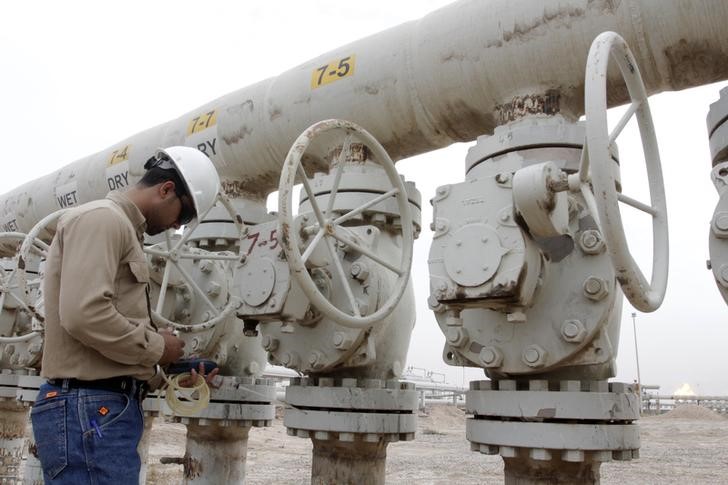Investing.com - Crude oil prices fell in Asia on Monday as investors took profits following supportive comments from OPEC and allies on Friday on the scope for reblancing the market.
U.S. West Texas Intermediate (WTI) crude futures dipped 0.16% to $50.58 a barrel by close of trade, not far from its highest level since May 25 at $51.11 reached on Wednesday. Brent crude dipped 0.09% to $56.37 a barrel.
On other news, The far-right AfD party stunned the German establishment by finishing third and entering parliament for the first time, with 13.5% of the vote. Under Germany's mixed-member proportional voting system, that vaults in well beyond the 5% threshold needed for seats in parliament.
Chancellor Angela Merkel's CDU and Bavarian allies, the Christian Social Union (CSU), won 32.5% of the vote, making them by far the largest parliamentary group, according to an exit poll for the broadcaster ARD, but that is down from 41.5% in the last election in 2013 and lower than recent polling. Their closest rivals, the center-left Social Democrats (SPD), slumped to 20.0%, a new post-war low.
Merkel now needs to work to form a coalition reportedly without the SPD, a process that will likely involve protracted negotiations.
In New Zealand, Bill English's National Party and the Labour party will vie for the support of kingmaker Winston Peters and his New Zealand First Party.
Elsewhere, a 3.4 magnitude earthquake in North Korea reaised speculation of a nuew nuclear test, but monitoring agencies were split on whether itw as a natural event or a nuclear detonation.
Last week, oil prices settled a bit higher on Friday, hovering close to their best levels in months amid optimism that the crude market was starting to rebalance.
For the week, U.S. oil prices gained about 1.5%, their third-straight weekly climb.
Meanwhile, Brent crude futures, the benchmark for oil prices outside the U.S., rose 43 cents, or roughly 0.8%, to settle at $56.86 a barrel after touching a more than six-month peak of $56.91 earlier in the session.
The global benchmark closed the week with a gain of 2.2%, its fourth-consecutive weekly climb. Major oil producers convening in Vienna for an OPEC-led committee meeting on Friday boasted record compliance with their production-cut agreement, but, as expected, decided to wait a bit longer to see if any further action was needed.
OPEC and non-OPEC compliance with the deal to curb output rose to 116% in August, the committee said, a strong increase from the 94% compliance achieved a month ago.
Kuwaiti Oil Minister Essam al-Marzouq, who chaired the meeting, said the market "is evidently well on its way towards rebalancing."
In May, OPEC and non-OPEC members led by Russia agreed to extend production cuts of 1.8 million barrels per day for a period of nine months until March 2018 in a bid to reduce global oil inventories and support oil prices.
But so far rising production from the U.S., Nigeria and Libya has undermined the cartel’s efforts to curb excess supply.
Russia’s energy minister suggested that January is the earliest date that an extension to the global accord can be considered, although other ministers suggested such a decision could be taken before the end of this year.
The committee’s next meeting is set for November 29 in Vienna, just a day ahead of OPEC’s regularly scheduled meeting.
Elsewhere, in the U.S., market participants mulled over data showing the number of oil rigs continued to decline, suggesting a possible tightening in domestic production.
Oilfield services firm Baker Hughes said its weekly count of oil rigs operating in the U.S. declined by 5 to 744, marking the third weekly decline in a row.
The weekly rig count is an important barometer for the drilling industry and serves as a proxy for oil production and oil services demand.
